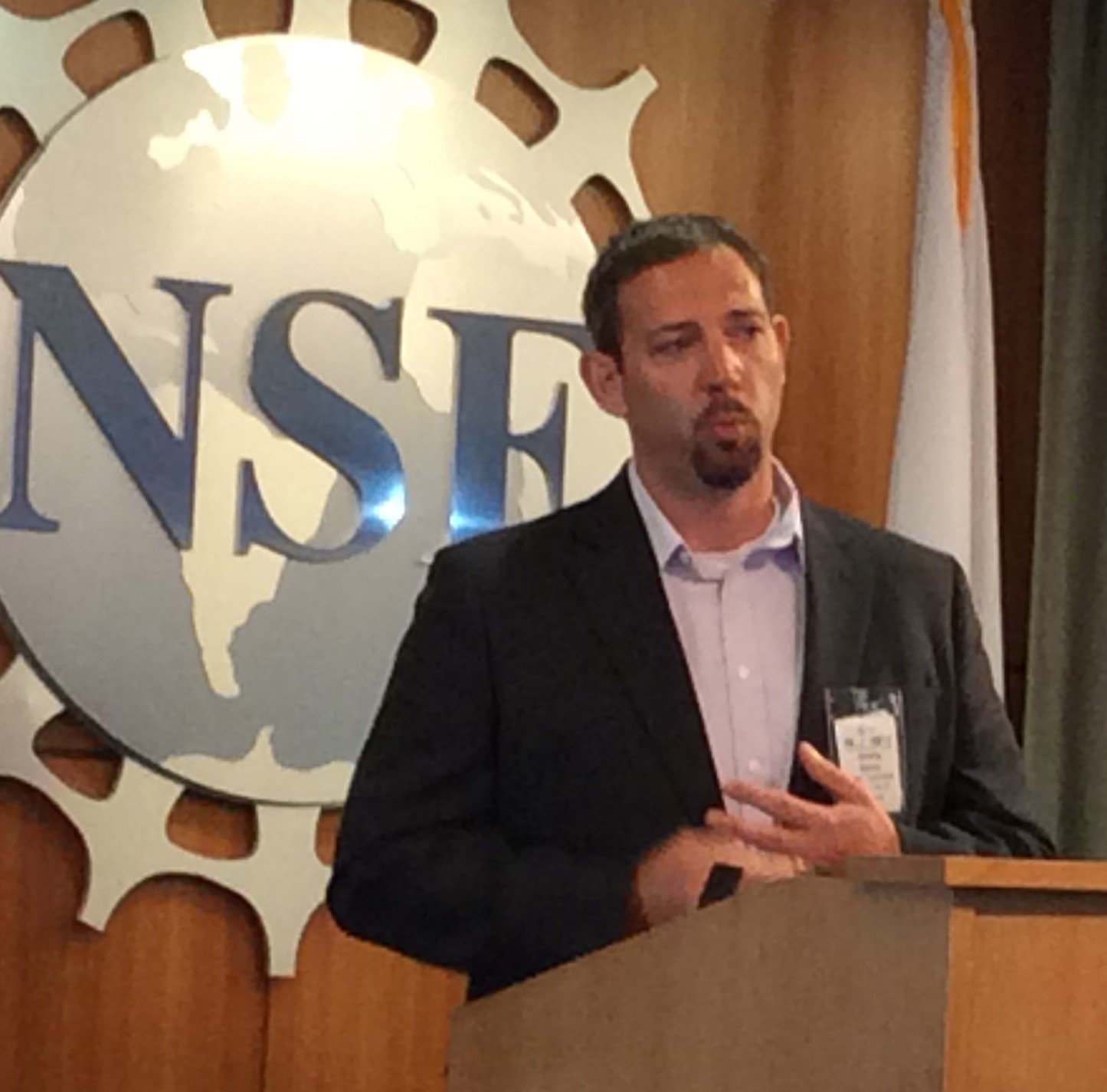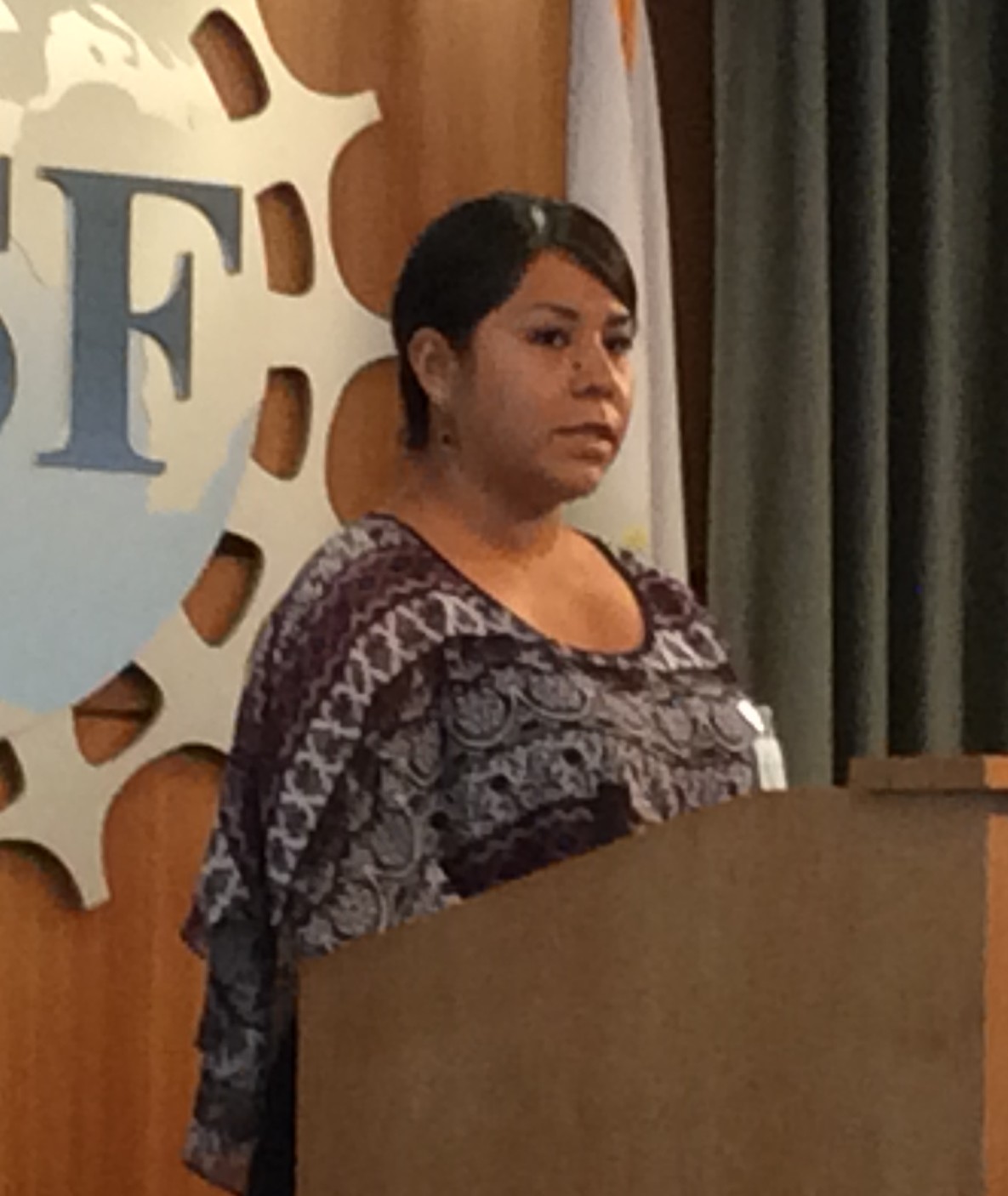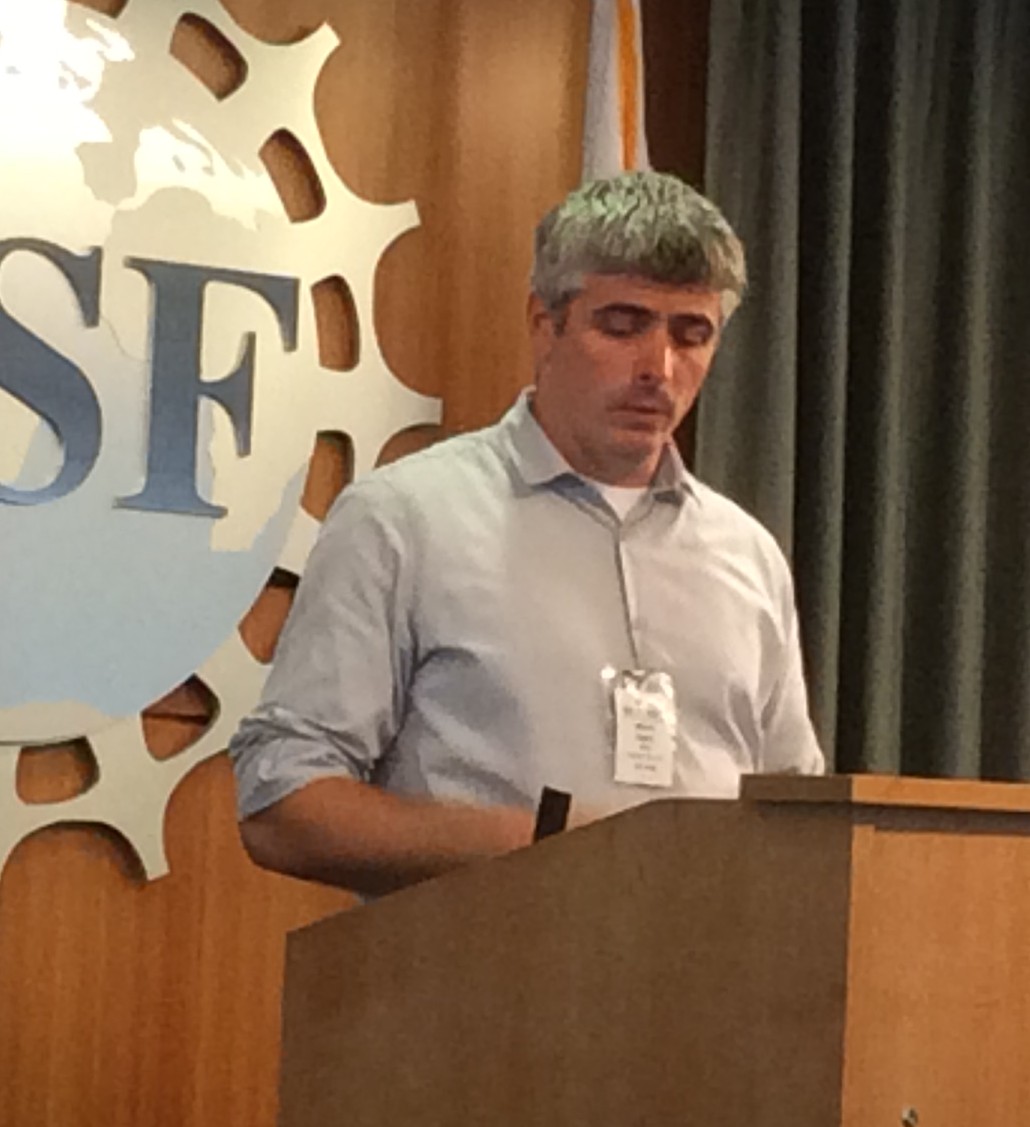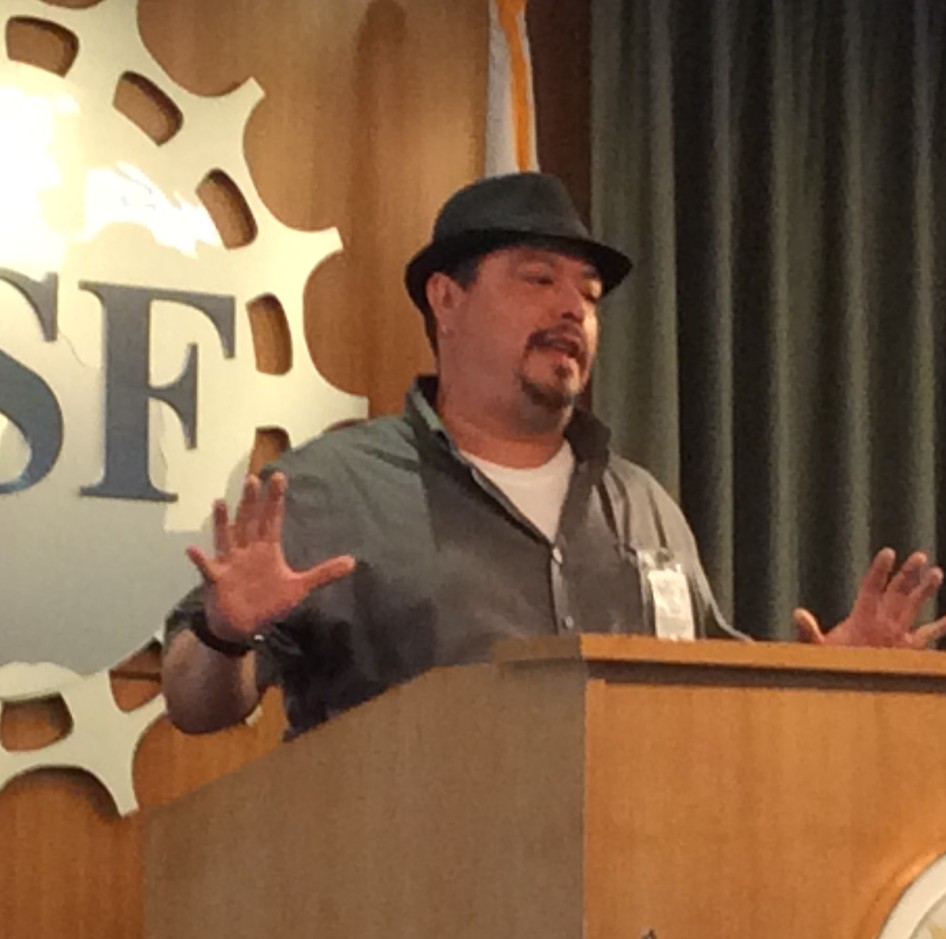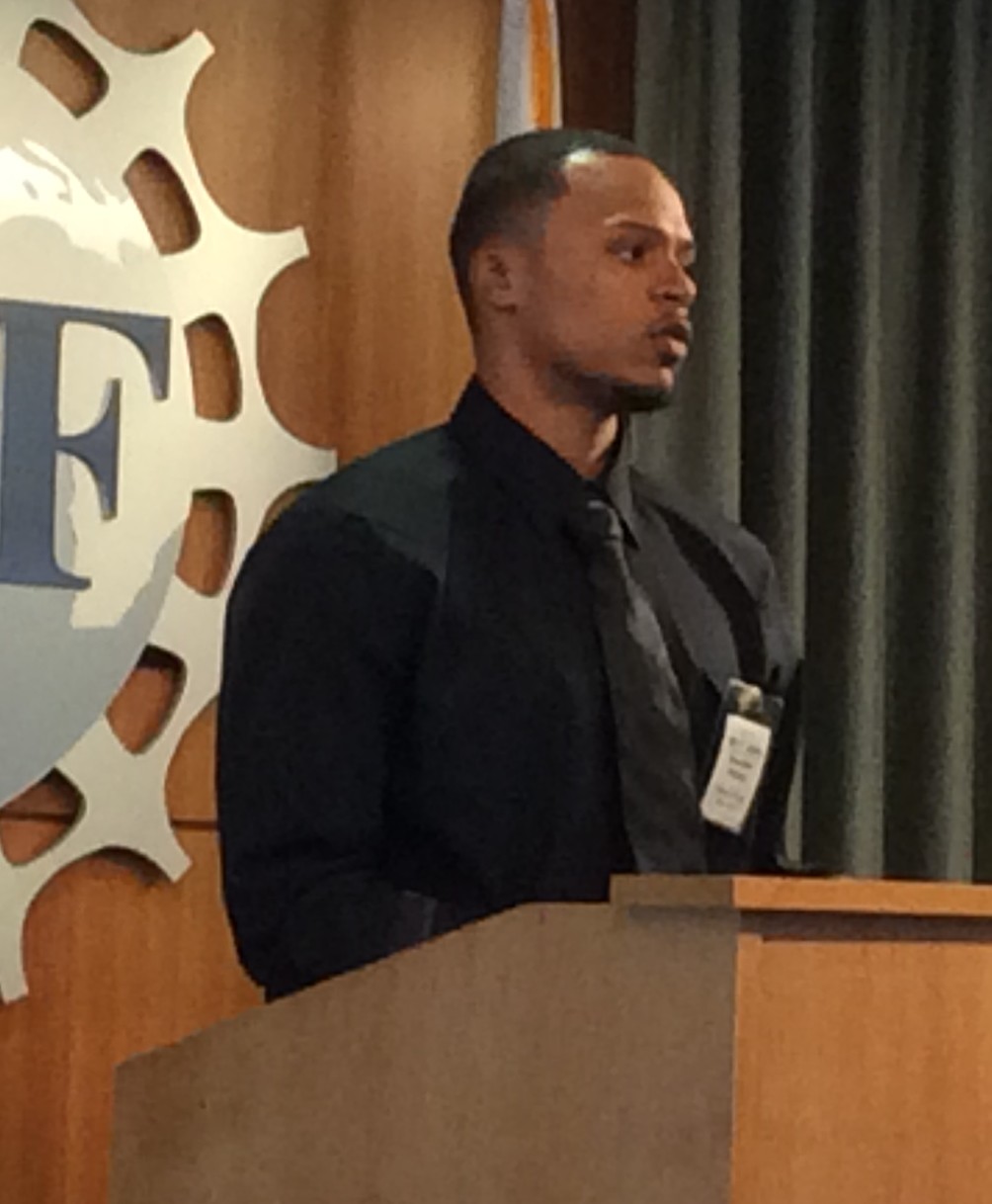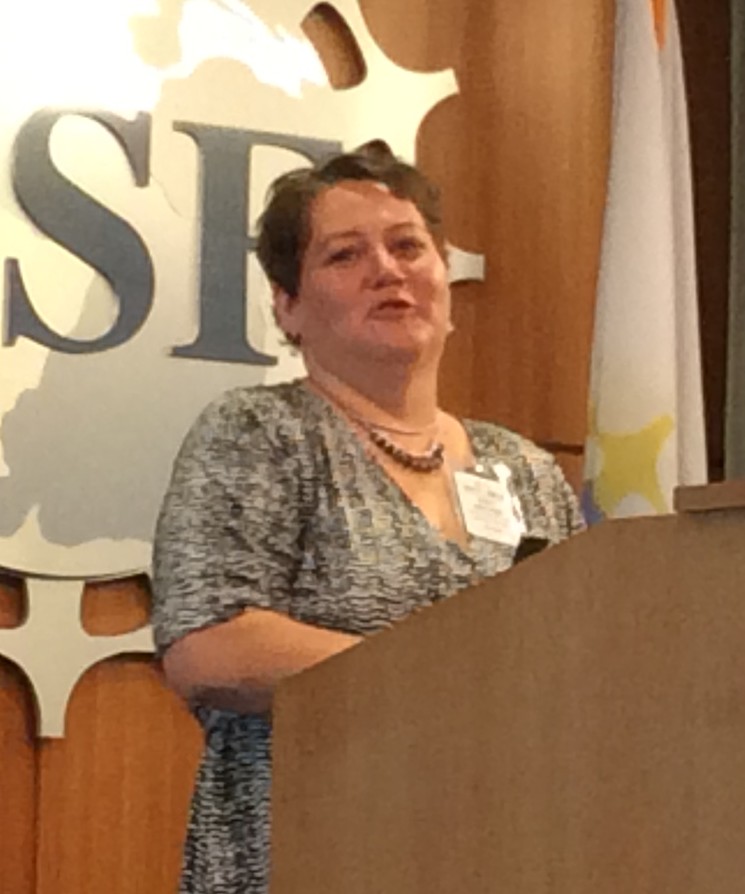Bats eat bugs harmful to agriculture, ornate box turtles prefer habitats with sandy soil, and eight hundred year old seeds found inside a clay ball can be coaxed into growing an enormous squash unknown to modern agriculture.
These are three of the findings reported at the second tribal college research symposium, sponsored by the National Science Foundation and held at the agency’s Alexandria, Virginia offices on August 17-18.
Intended to spotlight the quality and variety of research conducted by undergraduate students within Indian and native-serving colleges nationwide, it featured presentations by eighteen students and faculty from over a half dozen institutions.
The gathering also featured a poster session and talks by representatives of several federal agencies, including the National Forest Service and the Animal and Plant Inspection Service, about career opportunities in STEM fields.
Student presentations were the centerpiece of the two-day event.
- Nicole Olson of United Tribes Technical College examined the diet of bats, looking for evidence that they ate Plutella xylostella, commonly known as the diamondback moth, which is of European origin and considered an agricultural pest. By analyzing guano, she found little evidence that the moth is a major part of their diet, but she did discover that bats in the region do consume several other bugs that carry disease or attack important agricultural crops.
- Dawn Alkhafaji of United Tribes Technical College, part of a team investigating the diet of coyotes, found distinct differences between those living in rural and urban regions. The research highlights the adaptability of coyotes, which are resurgent across the country and are acclimating to urban environments.
- Ongoing research related to the habitat preferences of ornate box turtles on the Pine Ridge Reservation revealed that they prefer regions of sandy soil and taller growth. These habitats provide needed shade and allow the turtles to dig holes for shelter and warmth in winter, according to presentations by Oglala Lakota College student Camille Griffith and faculty member Alessandra Higa
- Susan Menzel of Lac Courte Oreilles Ojibway Community College reported on the discovery of an eight hundred year old clay ball containing seeds of a squash plant. Remarkably, the seeds were viable and produced unusually large and flavorful squash on vines reaching thirty or more feet in length when planted in a college-run garden. By growing and sharing seeds over the past three years, the plant is being reintroduced into the community and providing a connection to the agricultural heritage of native communities in the region.
Much of the research focused on issues that reflect the importance of culture and a deep concern for local environmental health. Oglala Lakota College student Devaughn Pearson reported on his use of forensic analysis to identify authentic native American artifacts, while Sitting Bull College instructor Gary Halvorson presented findings from his analysis of lead and mercury concentrations in river sediment on the Standing Rock Sioux Reservation.
The relationship between the land and culture was also discussed by student Sonni Tadlock and faculty member Marco Hatch from Northwest Indian College, who presented on the use of “clam gardens” by tribal peoples in the pacific northwest. These tidal habitats provide food while also enriching ecological diversity. Back on the Pine Ridge Reservation, Tada Vargas discussed findings from her study of the genetic health of the tribe’s bison herd.
Collectively, these and other presentations spotlighted the growth of research within tribal colleges, and the value of research in the communities they serve. Presenters all noted that their work was made possible by the National Science Foundation, which supports the development of STEM programs through its Tribal Colleges and Universities Program.

